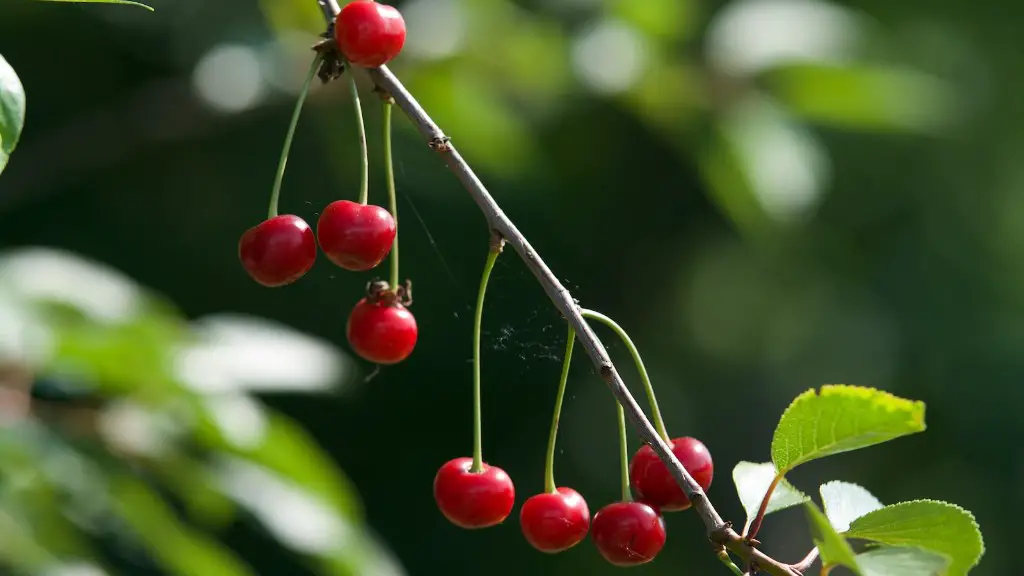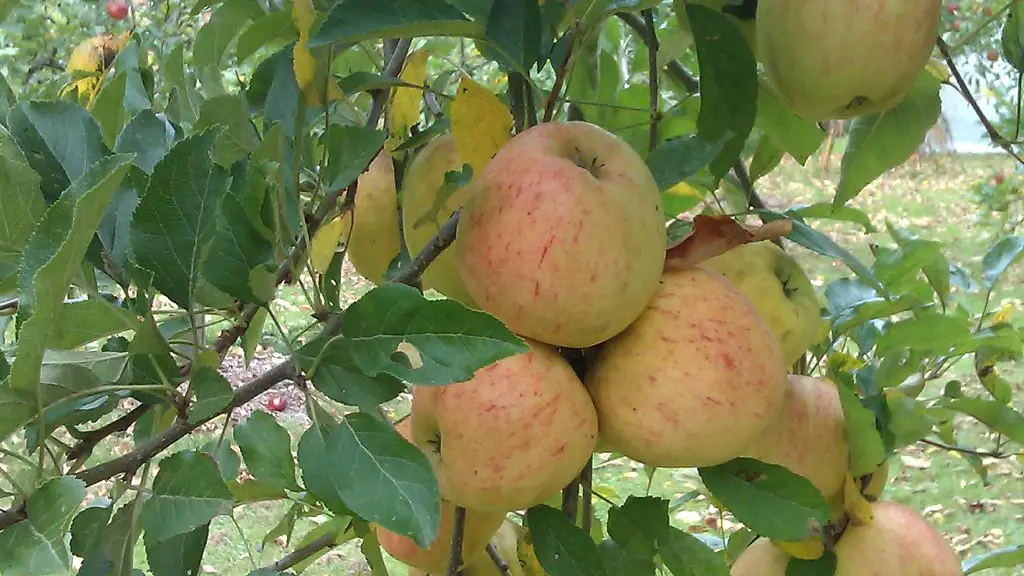Lemon trees are undoubtedly one of the most sought-after citrus trees and are a popular choice among homeowners. However, not all of them have the luxury of growing a lemon tree outdoors. So, the question arises – can you grow a lemon tree indoors? Fortunately, the answer is yes! You can indeed grow a lemon tree in the comfort of your own home.
To get started, it’s important to understand the basics. Lemon trees need adequate sunlight, water and fertilizer to grow and thrive. As such, it’s best to keep them near a south or west-facing window, as these provide the most direct sunlight. If the climate of your area doesn’t allow for natural sunlight, you can also purchase an artificial light bulb fixture to supplement your tree’s sun needs. Additionally, you’ll have to water your lemon tree regularly and make sure that the soil remains slightly moist.
When it comes to fertiliser, you don’t have to go for store-bought ones. You can simply use organic fertilisers such as compost, fish emulsion or seaweed extract. All of these can be highly beneficial for your lemon tree, as they provide vital nutrients for healthy growth. Moreover, you may want to periodically prune your lemon tree to encourage fruit production. This includes regular removal of dead leaves and trimming off excess branches.
Overall, if done correctly, you can certainly grow a lemon tree in your house. All it requires is a bit of understanding, dedication and patience. With the right mix of sunlight, fertiliser and water, you can ensure that your lemon tree yields bushels of lemons to enjoy. So, if you’re interested in having your own lemon tree, there’s no better time than now to take the plunge.
Other Steps to Ensure Proper Growth of a Lemon Tree in the House
In order to ensure that your lemon tree remains healthy and produces an abundance of fruits, it is important to pay attention to several other factors. The soil your tree is planted in, for instance, needs to be of good quality – not too sandy nor too waterlogged, but rather loamy with an acidic pH of 6.5-7.5.
Furthermore, since most lemon trees grown indoors are smaller than outdoor variants, it is important to check for pests and disease. The most common problems affecting lemon trees include yellowing of leaves, root rot and spider mites. To prevent them, you may use insecticidal sprays or simply isolate your tree in a different pot. Additionally, you must make sure that your lemon tree receives sufficient humidity, either through misting or through a humidifier near the tree.
Apart from these factors, you must also pay attention to how much energy your lemon tree requires. Lemon trees usually require temperatures of 18-30 degrees Celsius, with an ideal range being between 22-24 degrees Celsius. Additionally, during winter months, you may need to arrange for protection against frost. This can be achieved by insulating your windows or creating a makeshift mini-greenhouse to provide a stable atmosphere for your tree.
Overall, by understanding the requirements for growing a lemon tree and applying them correctly, you can ensure that your tree yields a bountiful harvest. With proper care and attention, your tree will reward you with plenty of juicy lemons for years to come.
The Pros and Cons of Growing a Lemon Tree in the House
As with any houseplant, lemon trees come with their own set of pros and cons. The obvious plus point is the assurance of access to fresh homegrown lemons. Additionally, lemon trees serve as charming decorative elements in the house and can freshen up the air. Since lemon tree cultivation doesn’t require a large amount of space, it can be a great alternative for smaller homes.
One downside of growing lemon trees indoors, however, is the fact that they have lifespans shorter than their outdoor counterparts. Nevertheless, lemon trees can still produce fruit for up to 10 years in captivity, provided they are given good care. Additionally, indoor lemon trees not only require more maintenance than other house plants, but the yield of fruit is typically lower as well.
An additional factor to consider is the cost of growing a lemon tree indoors. It is certainly possible to keep one’s lemon tree healthy without breaking the bank, but you may need to invest in a few crucial pieces of equipment such as a humidifier, artificial light and fertiliser to ensure that your tree remains healthy. Thus, while indoor lemon trees are relatively low-cost to maintain, they are definitely not free of expense.
In conclusion, there are both advantages and challenges to growing a lemon tree indoors. Despite this, there’s no doubt that, with proper care and attention, growing your own lemon tree can be a rewarding and enjoyable experience.
Further Tips on Growing a Lemon Tree in the House
Along with basic cultivation and upkeep, there are plenty of additional tips for propagating a healthy lemon tree in the house. Firstly, you must make sure to check the pH and nutritional content of the soil your tree is planted in. Keeping the soil in optimal conditions will help it retain the necessary nutrients for your tree’s growth.
Also, since most lemon trees are bred to be smaller in size than outdoor varieties, it is important to keep their size in check by trimming branches and blossoms as and when necessary. Additionally, when it comes to harvesting, remember that lemons usually take several weeks to ripen, so they should only be picked when they reach peak maturity. You can ensure this by carefully checking the fruit and only plucking ones that have a deep yellow colour.
Finally, don’t be tempted to harvest too many lemons at once. This can throw off the tree’s balance as too much fruit removed at once can lead to a decrease in its overall quality. Instead, keep the harvest to minimal and aim to pick only the ripest of fruits.
Common Challenges Faced While Growing a Lemon Tree in the House
Though growing a lemon tree indoors is relatively easy and can be highly rewarding, it is by no means a seamless experience. There may be plenty of challenges faced by individuals trying to propagate a healthy lemon tree in the house.
One common problem that may come up is insufficient sunlight. This can cause leaf yellowing, stunted growth and a lack of fruit production. To solve this, you can supplement natural sunlight with artificial light fixtures or move your tree to a sunnier spot in the house.
Similarly, inadequate watering can cause leaves to wilt, or worse, lead to root rot. To prevent this, one must be sure to keep the soil slightly moist at all times. Lastly, while it is generally easier to maintain indoor lemon trees than outdoor ones, they can still be affected by pests, fungal diseases and viruses. As such, it is important to keep a watchful eye on your tree and regularly spray insecticides/ fungicides.
Ways to Make Growing a Lemon Tree in the House Easier
Fortunately, there are several ways through which one can make their lemon tree-growing experience a bit easier. Firstly, instead of buying pre-seeded lemon trees, it is better to grow a lemon tree from a seed or a sapling instead. This will minimise the amount of maintenance required and allow for better control over the growth of your tree.
Next, when it comes to water management, investing in a moisture meter is highly beneficial, since it can help gauge when to water your tree and when to give it some time to rest. Similarly, using a potting mix that’s tailored to acid loving plants can help to retain water and protect roots while saving you from having to carry out periodic adjustments to the pH of the soil.
Other than that, installing a praying mantis in your tree can help ward off pests, while using neem oil or insecticidal soap helps to keep bugs at bay. Lastly, if you’re growing your lemon tree in an area where frost is a frequent occurrence, investing in an insulating material is the safest bet.




